Search
07448 Role of Stress Conditions on Stress Assisted Corrosion Behavior of Carbon Steel Boiler Tubes
Also Purchased
07443 Stress Assisted Corrosion in Boiler Tubes - Failure Analysis
Product Number:
51300-07443-SG
ISBN:
07443 2007 CP
Publication Date:
2007
$20.00
07444 STRESS RELATED BOILER FAILURES
Product Number:
51300-07444-SG
ISBN:
07444 2007 CP
Publication Date:
2007
$20.00
07447 CORROSION AND STRESS RELATED BOILER TUBE FAILURES CASE HISTORIES
Product Number:
51300-07447-SG
ISBN:
07447 2007 CP
Publication Date:
2007
$20.00




